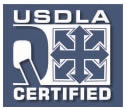Editor: Dennis O'Connor Follow us on
New Online Course
EDUC 664 Teaching K-12 Computational Thinking (in all curricular areas)
Learn strategies to help students think critically and solve problems creatively using technology.
You will note that when you click on a link, a new tab will open in your browser. To return to this page, close the new tab by clicking on the X (see the arrow).
Featured Online Course
EDUC 642 Teaching Digital Media Literacy - The Power of Primary Sources
Our Students Say
"No matter what grade or subject you teach, there are materials that teachers can use. I wish I would have learned about these tools in my pre-teaching training in college."
~ High School Social Studies, AP Psychology, and Government Teacher, Wisconsin
Digital Literacy Search Tools and Programs for Fact Checking, Critical Thinking Angles, Curriculum Resources
Gapminder: Unveiling the Statistics for a Fact-based World View
Gapminder is a Swedish non-profit organization founded by Hans Rosling. Their brilliant data visualizations, based on research facts, provide a solid foundation for critical thinking about our world.
10 Creative Ways to Teach Media Literacy
Saga Briggs defines media literacy as "...the ability to access, analyze, evaluate, and create media in a variety of forms."
We live with powerful computers on the wrist, in the pocket, and on the lap. Do we have the skills to think with technology to interpret the information streaming through us? A quick, graphic-rich overview of how to teach (and learn) these vital skills.
New Research Highlights A Digital Literacy Gap — Here's How To Bridge It
Thinking and digital literacy skills are needed in marketing and corporate business. Peter Horst describes how the gap is real, and it represents an opportunity for agile thinkers.
The Roy Rosenzweig Center for History and New Media
The (RRCHNM) is a multi-disciplinary umbrella organization offering resources, tools, and specialized websites focused on primary sources. Their many projects include:
Interactive challenges to explore the Library of Congress primary sources.
National History Education Clearinghouse
Rich resources for K-12 teachers
From the Annenberg Public Policy Center of the University of Pennsylvania, Factcheck.org is a nonprofit, nonpartisan research organization. They combine investigative journalism with academic research to illuminate the gray areas of political bias.
Common Sense Media: News and Media Literacy
This subsection of Commonsense Media focuses on helping children and teens cope with distorted, often scary news. They help young people learn to fact-check, find reliable sources, and recognize fact vs. fiction.
Kathy Schrock's Guide to Everything: Media Literacy
Curated classics on how to think about media
Tech Tip
Jump to our Teamwork Rubrics for timely tips that will get everyone learning.
Creating and Using Rubrics for Assessment
Click to access our Archive of Past Technology Tip Newsletters!
Sign up now!
Check out the list of online classes and certificate programs.
You may enroll to meet your goals for
- advanced certificate
- professional development
- continuing education refresher course
- license renewal
- graduate credits
- transfer credits to another university.
If you need a copy of the syllabus for your employer to approve enrollment in a course, contact Joan Vandervelde: vanderveldej@uwstout.edu
Phone: 715-642-0209
Begin Your Master of Science in Education Degree
Degree Overview and Financial Aid Options
Apply soon!
Our Master of Science in Education is a 30-credit master's degree that features all online courses and offers a flexible curriculum to meet your professional development goals.
Select courses (11 credits) within an interest area, earn a certificate, or mix and match classes from several areas.



